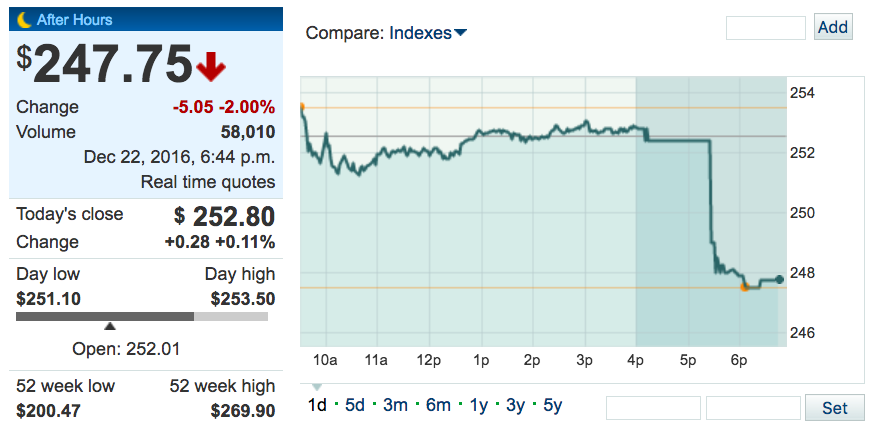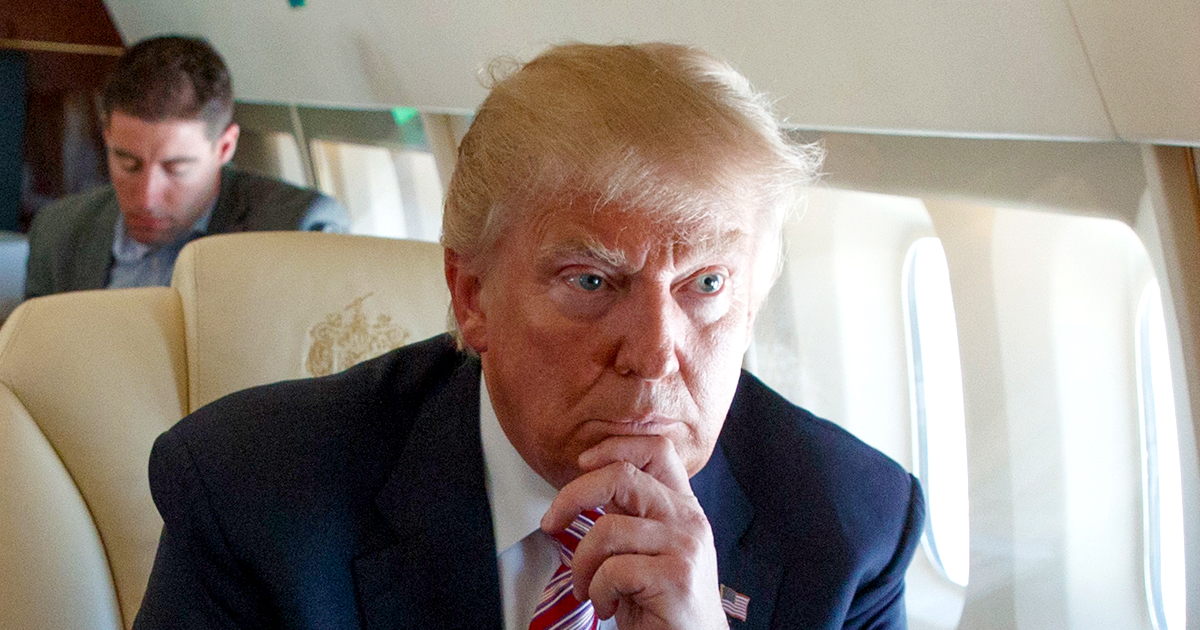What Happened After Donald Trump Tweeted About Fighter Planes

By:
Donald Trump announced on Thursday that he plans to cancel a large order of F-35 fighter planes for the U.S. military, causing shares of the aerospace company to plummet two percent.
The drop amounts to a $1.2 billion loss for the company.
 Market Watch - marketwatch.com
Market Watch - marketwatch.com
Lockheed Martin was expected to manufacture more than 2,400 F-35 planes for the U.S. Navy, Army, and Air Force by 2037. The price tag for the order would have been around $400 billion, and the cost of maintaining the planes over the course of 55 years would have been around $1.5 trillion, according to CNBC.
In a tweet, the president-elect said "the tremendous cost and cost overruns of the Lockheed Martin F-35" led him to ask the airplane manufacturing company Boeing "to price-out a comparable F-18 Super Hornet."
Though experts have identified numerous faults with the F-35 — including software deficiencies that could affect its weapons delivery accuracy and problems with its flight control system — the plane is still considered the most advanced on the market, featuring "stealth capabilities, radar-jamming abilities, supersonic speed, extreme agility, and state-of-the-art sensor fusion technology," CNN reported.
In contrast, the F-18 doesn't have the stealth functions that make the F-35 so valuable from a military perspective. Because the shape of the F-18 was not designed for stealth, it can be easily detected by enemy radars.
Trump's tweet comes a day after he met with executives from Lockheed Martin and Boeing to negotiate a deal on the planes. He told The New York Times that the meeting was "just [the] beginning, it’s a dance."
The defense industry is preparing for future dances with the president-elect, whose habit of tweeting about active deals and foreign policy matters has become a source of concern.
 AP/Evan Vucci - apimages.com
AP/Evan Vucci - apimages.com
Baird Equity Research analyst Peter Arment cautioned in a note Wednesday that Trump's recent remarks about the F-35 program could send a message to the defense industry "of potentially more risk-sharing on costs." Arment added that "[t]his is potentially a new paradigm for the industry," according to Reuters.
Some industry observers have predicted more than just market volatility under Trump.
Byron Callan, director of the policy research firm Capital Alpha Partners, put the issue is starker terms. According to Foreign Policy, Callan told investors "Trump’s tweets and a relatively inexperienced National Security Council raise the probability, in our view, that a crisis could occur in 2017 that alters defense spending plans and may impinge on deficit discipline."
